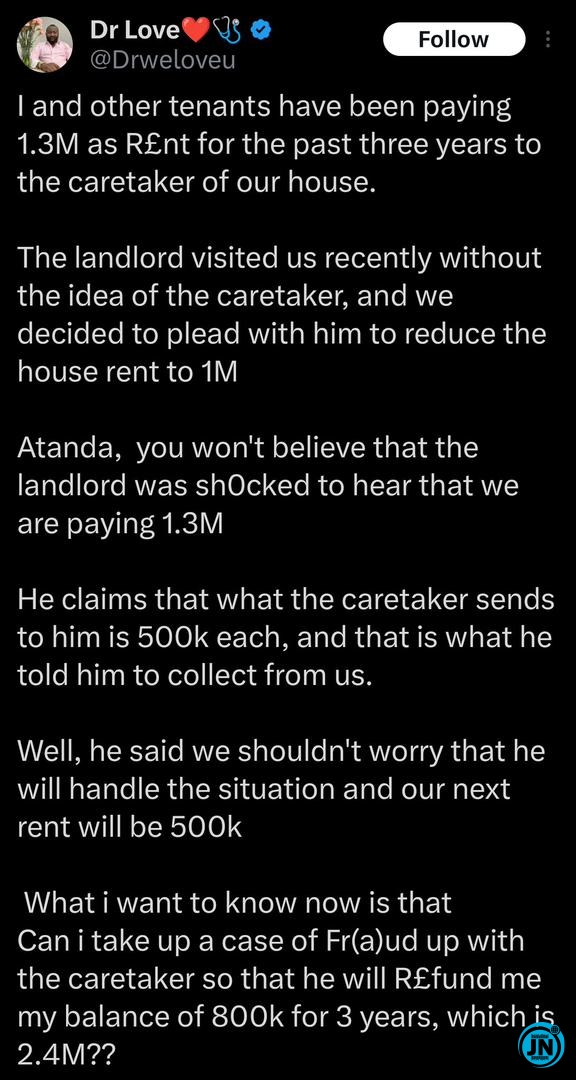A Nigerian tenant has shared a shocking story about a fraud scheme allegedly involving the caretaker of his building, who is said to have inflated the rent by charging tenants N1.3 million per year, instead of the N500,000 set by the landlord. The tenant, who goes by the handle @Drweloveu on X (formerly Twitter), revealed that he, along with other tenants, had been paying the inflated rent for their apartments without knowing the actual price. The truth was only revealed when the landlord unexpectedly visited the property, and the tenants seized the opportunity to discuss the rent.
According to the tenant’s post, the landlord was shocked when he learned that the tenants had been paying N1.3 million annually for their apartments. The landlord explained that the correct rent was actually N500,000 and that this was the amount the caretaker had been instructed to collect from them. The tenant expressed disbelief, stating that they had been overcharged by N800,000 per year for the past three years, totaling a staggering N2.4 million.
The tenant shared his frustration online, asking if it was possible to pursue legal action for fraud against the caretaker in order to get back the overpaid amount. He expressed his desire to have the caretaker held accountable and reimbursed for the excessive charges. In his post, he wrote, “What I want to know now is: Can I take up a case of fraud against the caretaker so that he will refund me my balance of ₦800k for 3 years, which is ₦2.4M?”

The post has sparked a wide range of reactions online, with many people expressing outrage and demanding justice for the tenants. Some social media users have called for the caretaker to face legal consequences for the fraudulent activity, while others have shared similar experiences of being overcharged or deceived by landlords and caretakers. The story has reignited discussions about the need for better regulation and transparency in the rental market. Many are now urging tenants to be more vigilant and take legal action if they encounter similar situations.
In response to the tenant's claims, some followers have suggested that he should seek professional legal advice to determine the best course of action. Others have also pointed out that such cases are unfortunately common in Nigeria's rental market and called for greater awareness of tenants' rights.
The situation is still unfolding, but one thing is certain – the demand for accountability and justice is growing, with many people rallying behind the tenant's call for action against the caretaker. The case is expected to serve as a warning to others in similar living situations, urging them to verify the terms of their rental agreements and to be cautious about overpayment.
As the story continues to gain attention, it highlights the need for transparency, fair practices, and protection for tenants within Nigeria's real estate industry. The incident has not only exposed the deceitful actions of one caretaker but also opened up a broader conversation on how to prevent such fraud from happening in the future.

